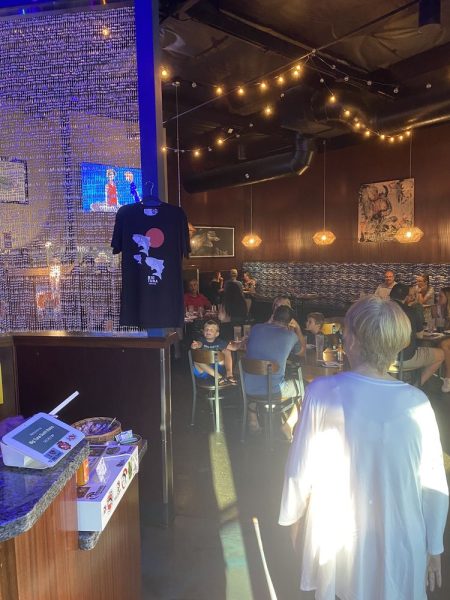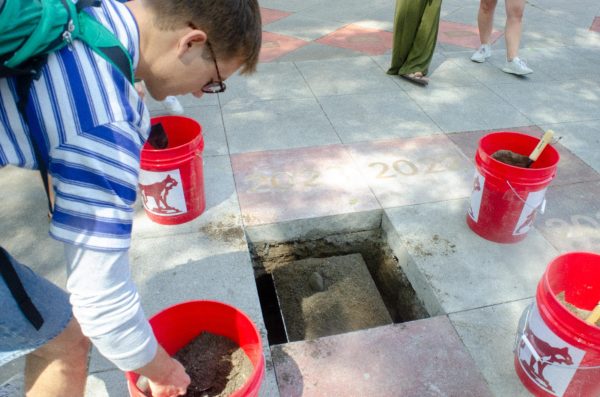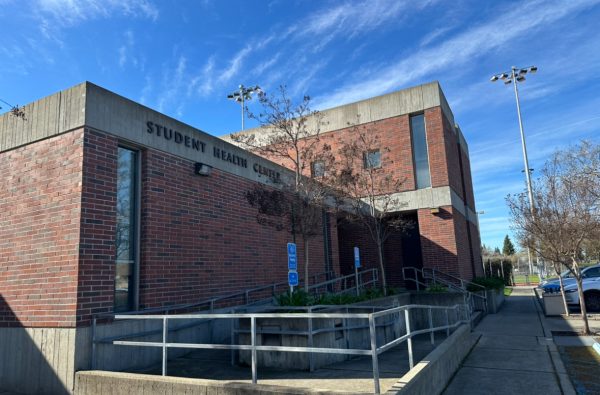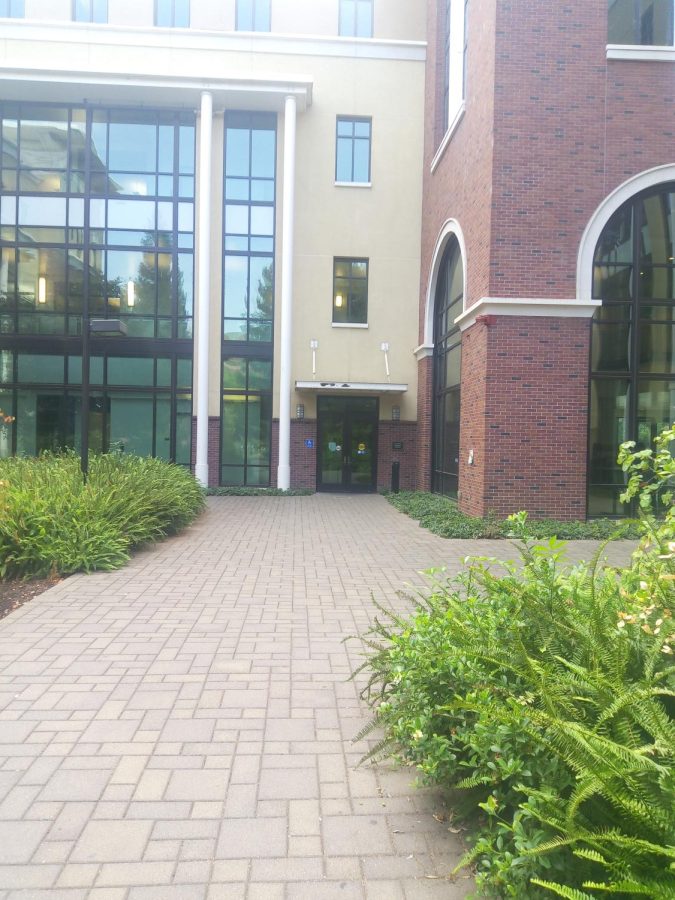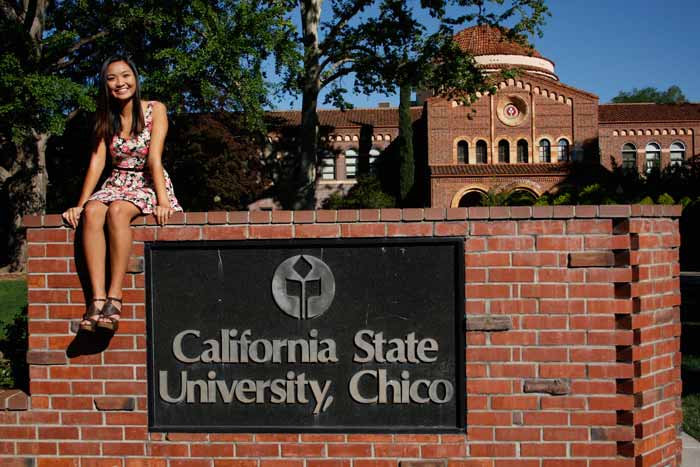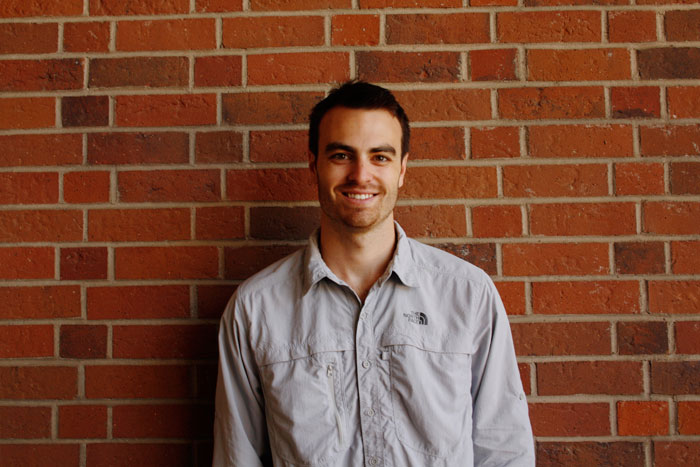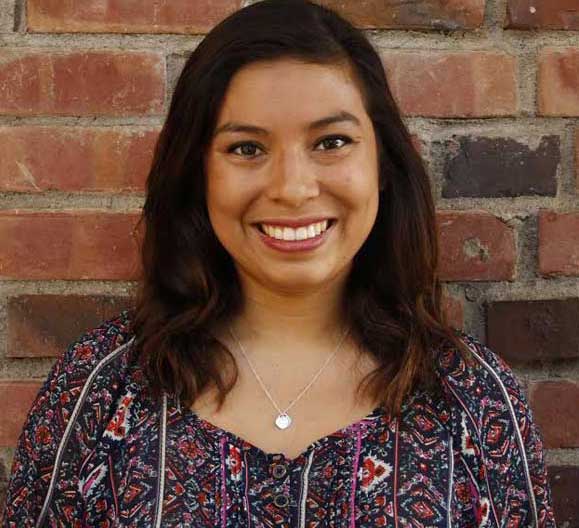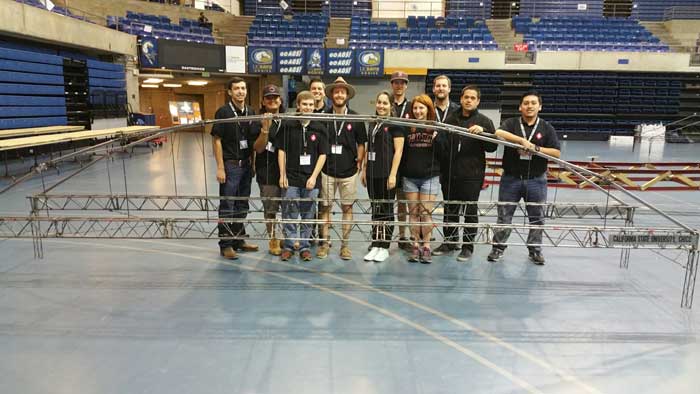Published 2012-11-27T21:18:00Z”/>
Drinking death, hazing allegations prompt shutdownQuinn Western and Katrina Cameron
As students were leaving for Thanksgiving break, a cold autumn breeze blew the lowered university flag.
It waved in memory of senior communication design student Mason Sumnicht, who died Nov. 15 at Enloe Medical Center after being taken off life support.
Sumnicht had been rushed to the hospital nearly two weeks earlier on Nov. 4 for alcohol poisoning after celebrating his birthday.
The day Sumnicht died, Chico State President Paul Zingg stood before approximately 400 fraternity and sorority members in the Bell Memorial Union Auditorium and announced the immediate suspension of Chico State’s Greek system.
“We will reset, we will review and we will think about our future together,” Zingg said.
Sumnicht is the second Chico State student to die of alcohol-related circumstances this semester, and his death marks the fourth alcohol-related student death in Chico since August.
These deaths are the most recent consequences of a drinking culture that takes a toll on the city, jeopardizes the reputation of the university and hinders Chico State’s student organizations.
<strong>“Have you read your charters?”</strong>
The last time Chico State’s Greek system underwent major review was in 2005, after hazing incidents killed one pledge from the Chi Tau fraternity and left another pledge from Sigma Chi in critical condition.
That same year, university administrators also learned that Phi Kappa Tau members participated in making a pornographic video at their chapter house.
In response, Zingg assembled a task force to diagnose and improve the Greek system. He instituted new requirements that included eradicating drugs and alcohol from Greek houses and establishing a minimum GPA requirement for Greeks.
But this semester, three fraternities, Kappa Sigma, Phi Beta Sigma and Sigma Pi, are under investigation after accusations of hazing, said Connie Huyck, the student life and leadership program coordinator at Chico State.
In February, the university suspended the Phi Kappa Tau fraternity following allegations of members drinking with potential recruits at a private home after recruitment activities, as reported by The Orion.
Sigma Nu is on probation for violating Greek alcohol policies, and Lambda Sigma Gamma is on probation for an altercation between multiple sorority members and a non-Chico State student.
When Zingg addressed representatives of the Greek organizations in the BMU Auditorium, he asked if fraternities and sororities were following through on their stated missions.
“Have you read your charters?” Zingg asked.
<strong>“Once you get that reputation, it’s hell to change it.”</strong>
There were three other alcohol-related student deaths in Chico this semester. According to police:
<ul> <li>On Aug. 19, Shaun Summa, a 22-year-old Butte College student, was found dead in the backyard of a Chico home on the 800 block of West First Street. Toxicology results showed that Summa choked on his own vomit and had a blood alcohol level of 0.34.</li> <li>On Sept. 9, fishermen found the body of Brett Olson, a 20-year-old Cal Poly San Luis Obispo student who went missing Sept. 2 after attending the Labor Day weekend float on the Sacramento River. A toxicology report revealed that Olson had alcohol and cocaine in his system at the time of his death. His blood alcohol level was 0.28.</li> <li>On Sept. 16, Carly Callaghan, a 22-year-old Chico State graphic design major, was found dead in her home by her roommate. A toxicology report revealed that Callaghan’s death was caused by a combination of alcohol, morphine and Prozac.</li> </ul>
Party school reputations contribute to alcohol-related deaths, said Juliana Del Beccaro, a longtime friend of Olson and a junior international economics student at San Diego State.
“People know that when they apply to party schools like Chico, SDSU or ASU that they’re going to a school where having a very active social life is a priority,” Del Beccaro said.
Chico State was named the No. 1 party school by Playboy magazine in 1986, 26 years ago. The school held that ranking until Playboy Published a second list in 2002, when Chico State dropped to second place.
The party school influence impacts the university’s ability to change its behavior, Zingg wrote in an email to The Orion.
“Although we have not been on anyone’s top party school list for a long time, the reputation lingers and it hurts us,” he wrote.
There is a perceived relaxed attitude toward alcohol in the south-campus area, so many come to Chico because such partying would not be tolerated in most other communities, said Drew Calandrella, vice president for student affairs.
Masses of guests are prominent during holidays like Labor Day, Halloween, St. Patrick’s Day, Cesar Chavez Day and Cinco de Mayo.
“Once you get that reputation, it’s hell to change it,” Chico City Councilor Bob Evans said. “It’s not an easy task. It would be a hard reputation to break.”
In 2003, the university and the city advisory committees agreed to put an end to Halloween partying. University Police, California Highway Patrol and Alcohol Beverage Control officers all increased enforcement.
The city also conducted more high-profile drunken driving checkpoints and implemented “party patrols” that shut down rowdy parties, said Robert Saltz, a research scientist at the Prevention Research Center in Berkeley.
After those changes were implemented in Chico and seven other university cities, an average of 900 fewer students were intoxicated at off-campus parties per campus per semester and 600 fewer students were intoxicated at bars or restaurants.
These changes were measured over the next two years, and it’s unknown whether the decreases in drinking were sustained, Saltz said.
<strong>“In these times of tight budgets, our resources are pretty thin.”</strong>
The city must use funds to accomodate the increase in demand for police presence during alcohol-infused holiday weekends to pay for additional staffing and overtime.
The Glenn County Sheriff’s Department spent more than $30,000 on the Labor Day float this year, Sheriff Larry Jones said. The weeklong search for Olson cost Glenn County $15,000.
About 10,000 tubers attended the annual Labor Day weekend float on the Sacramento River this year, and 2,000 crowded Beer Can Beach, an island on the river.
During the event, police performed 63 river rescues, Glenn County Undersheriff Rich Warren said. Ten people were arrested for driving under the influence near the river.
“For the most part, most of them were very young,” Warren said. “They shouldn’t be drinking in the first place.”
Sixteen Chico State students were arrested over Labor Day weekend, according to Chico Police. Two of the arrests were for DUIs, and 14 were made for public intoxication.
The mentality that students are supposed to drink and act foolishly in college contributes to Chico’s alcohol problem, Chico police Sgt. Scott Franssen said.
“A vast majority of the students are here for one thing, and that’s to get an education.”
The cost of increased staffing and overtime was more than $88,000 for this year’s Halloween weekend festivities from Oct. 26 to 28, according to a press release from the Chico Police Department.
Fifteen Chico State students were arrested during Halloween weekend, and 11 of the arrests were for public intoxication.
Alcohol influences crime and acts of irresponsibility, Franssen said.
“It’s all kind of a senseless idea that revolves around alcohol and drugs and people acting foolishly,” he said.
Chico has to fund police overtime when it needs to commit officers to other things, assistant city manager John Rucker said.
“In these times of tight budgets, our resources are pretty thin,” he said.
<strong>“Yes, we have an alcohol problem here.”</strong>
The university’s suspension of recognized fraternities and sororities is the most recent act against alcohol abuse that Chico State has made.
Chico State has a drinking culture, said Nicole McAllister, Associated Students director of legislative affairs and a member of the Alpha Chi sorority.
“I’m glad the university is taking steps on retroacting the issue,” McAllister said. “There is an issue with the Greek life.”
The university is not alone in its battle against alcohol abuse, Zingg wrote in an email to The Orion.
“Yes, we have an alcohol problem here,” he wrote. “It is not unlike the problems that many colleges and universities have, especially residential institutions.”
The Chico State campus works with the city, Butte College, the Chico Unified School District and property owners to provide educational and intervention information and to strategize about the “party weekends,” Calandrella wrote.
The Campus Alcohol and Drug Education Center is a university program that provides workshops, classroom presentations and AlcoholEdu to inform students about alcohol use and abuse, he wrote.
AlcoholEdu is required of all incoming freshmen, and “despite many students’ complaints that ‘they know all this stuff,’ they do acknowledge the review of the information is helpful,” Calandrella wrote.
University Housing also provides alcohol programs for residents, including its two-strike program, which gives first-time offenders a more in-depth alcohol training program through CADEC and a referral to judicial affairs, he wrote. All athletic teams, Greek organizations and many clubs participate in alcohol education programs.
The university has done a lot, but it is obvious that more needs to be done, Zingg wrote.
“We make some progress, then experience setbacks, as we have seen this fall,” he wrote.
<strong>“Today decides tomorrow.”</strong>
The university is investigating what happened to Sumnicht on the night he was taken to the hospital but will not disclose details during the investigation, said Joe Wills, director of public affairs and publications for Chico State.
It is still unknown how long it will take, but the university will try to complete the process this semester, he said. Students and organizations can face disciplinary sanctions from the university, and Student Judicial Affairs can discipline, suspend or expel individuals.
In addition, students could be subject to investigation if police suspect criminal activity, Wills said.
The university is working on new regulations for the Greek system and will re-evaluate fraternities and sororities under those guidelines next semester, he said.
Each sorority and fraternity will be assessed by the university for reinstatement, Calandrella said.
“Some won’t come back,” Calandrella said. “Some won’t choose to come back.”
Editor’s note: Pedro Quintana and Ben Mullin contributed reporting to this article.
<hr />
<strong>The Orion can be reached at </strong><a href=”mailto:[email protected]”><em>[email protected]</em></a>
